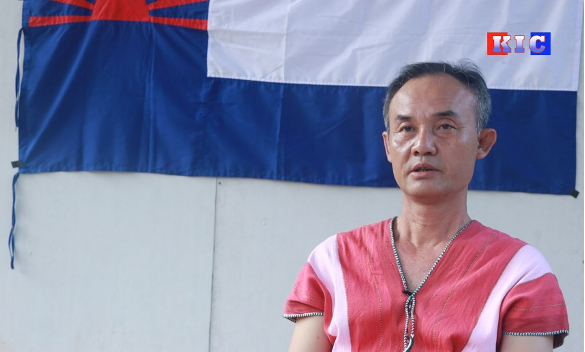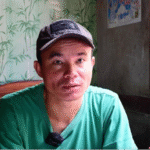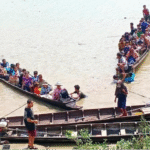The Minister of Foreign Affairs of Thailand said that as of the end of February, Thailand will build a humanitarian zone on the Thai-Myanmar border in order to provide medical supplies, foods and other humanitarian assistance to 20,000 IDPs on the border through the Thai and Myanmar Red Cross Societies.
Karen Information Center (KIC) interviewed Padoh Saw Kale Say, Spokesperson of the KNU (Karen National Union), about the plan to provide aid to 20,000 IDPs with the help of the Thai Red Cross Society and Myanmar Red Cross Society, including the establishment of a humanitarian zone on the Thai-Myanmar border.
Q: What does the KNU want to comment on the program to provide medical supplies and foods to 20,000 IDPs by the Thai Red Cross with the help of Myanmar Red Cross Society.
A: We already predicted that the fighting would intensify shortly after the military coup. We have also predicted that there will be more IDPs if fighting becomes more intense. We already predicted that the pace of the battle would not slow down. Therefore, when the number of IDPs gradually increases, we must consider a plan to deliver assistance to the public. Based on our more than 70 years of experience, we have discussed what kind of support and assistance to the public would be more effective. We have told the media many times and issued statements about it.
The first priority is to carry out the delivery of cross-border aid when we receive international aid. We are beginning to consider how cross-border aid will be distributed through the organizations. As I mentioned earlier, based on our experience, we believe that aid will reach the public only when NGOs, CBO and CSOs are involved in it. We have learned lessons from experience. However, aid comes from ASEAN’s AHA. We understand that the situation is not so bad if there is an inflow of aid into the country via Thailand.
Aid will never reach the IDPs if aid is distributed through cooperation between the Myanmar Red Cross Society and the Thai Red Cross Society and then the International Red Cross. Because we understand that these groups can’t do anything effectively on the ground. We get upset over their decision. Another thing is that our revolutionary groups have made a plan to do it using our experience. This is not our work. Our idea is to do something that should be done for the public.
Q: Did the KNU hold a discussion with the Thai government on the delivery of assistance?
A: Yes. We have held discussions with social organizations, NGOs and INGOs. We have to discuss with them as they must be involved in the delivery of assistance to IDPs.
Q: Does Thailand’s humanitarian aid program which will be implemented in cooperation with the junta mean that Thailand or ASEAN recognize the Myanmar junta? Does it turn a blind eye to opposition groups, ethnic armed groups and the current political landscape in Myanmar? May I know your comment on it?
A: We don’t believe that they support the military. The main thing is to ensure that their interests are not affected. So, we understand that it is a decision in their interest. Another thing is we understand that they have to work together with this military council as some international communities still believe that only the military group will defeat the revolutionary forces in the 2021 Spring Revolution.
Q: What would the KNU say to the international community that will provide assistance for cross-border humanitarian aid, including Thailand?
A: We will need to review the ASEAN Coordinating Centre for Humanitarian Assistance’s (AHA Center) plan. We want them to review it. We would like to say that we want them to think about it in order that aid can reach the IDPs.
Q: Amidst the current conflict, will Thailand’s border humanitarian zone be sustainable in the long term? What do you think about Thailand’s plan for the accommodation of IDPs?
A: The operation of three centers is impossible in the long run. Because of the current political situation in Myanmar, no one will believe in the military council regarding Thailand’s establishment of the centers on the border. No matter how the centers are established and no matter how much aid is there, the public will not believe in the military council.
Q: Analysts said that the opening of humanitarian zone aims to bring the army, opposition groups ethnic resistance forces to a negotiation table. What do you want to comment on this review?
A: There are people who think like that. We have had a lot of experiences throughout our revolution journey. Now, it has reached a situation that is completely different from the previous one. That is why it is absolutely impossible to bring the groups to a negotiation table through such a humanitarian program.
Sent by KIC



